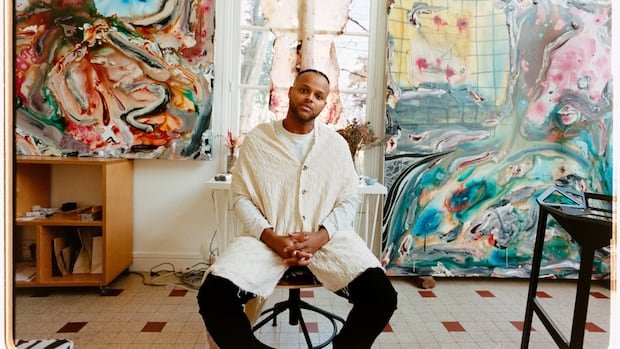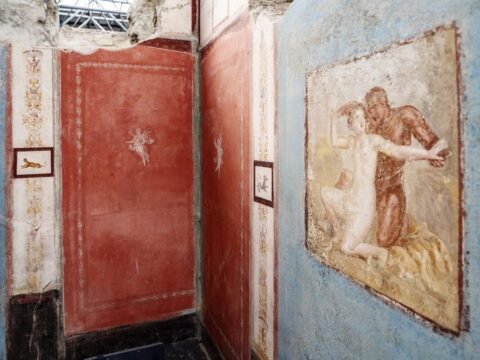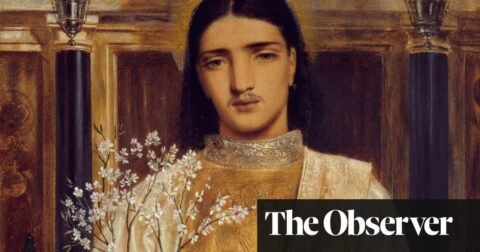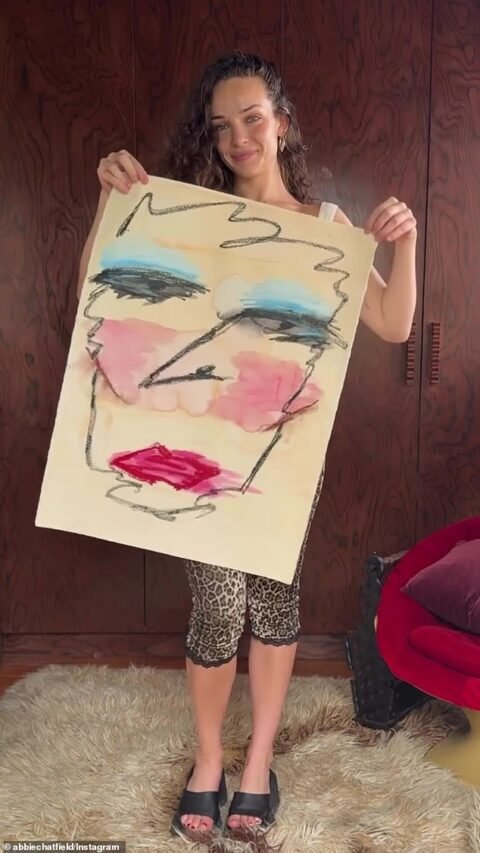When Montreal-based artist Manuel Mathieu arrived in Paris in the fall of 2022, he was already celebrated for his multidisciplinary practice.
Born in Port-au-Prince, Haiti, in 1986, Mathieu immigrated to Montreal at 19 years old. By 2020, he had earned his first North American museum solo exhibition at the Montreal Museum of Fine Arts and a nod from the prestigious Sobey Prize for his expressive, quasi-abstract paintings and installations.
Mathieu then began a series of ambitious collaborative projects: learning from ceramic artisans in Jingdezhen, China; directing the award-winning short film Pendulum; and receiving a commission to produce his first public artwork, a sprawling mosaic for Montreal’s Édouard-Montpetit light rail station.
In Paris, however, Mathieu hoped to explore not only a new medium, but a whole new sense: smell. Although his official aim was to work on a collection of drawings as part of a six-month residency with the Art Explora Foundation, Mathieu wagered that the foundation’s connections could help introduce him to the French fragrance industry. His secret aspiration was to become a “nose,” an expert trained in the creation of perfume.
His ambition shifted gears, however, once he started to meet with industry insiders. “Very fast, I realized that I’m not going to be able to become [a nose],” he says, “but I would love to work with one.”
Before long, Mathieu met Juliette Karagueuzoglou, who is a vice president perfumer at IFF (International Flavours & Fragrances), an “oil house” that produces aroma chemicals. Karagueuzoglou has also created perfumes for big-name designers like Giorgio Armani and Yves Saint Laurent as well as cult-favourite niche houses like Penhaligon’s and L’Artisan Parfumeur. (“Niche,” in perfume terms, refers to a brand focused solely on fragrance, as opposed to “designer” labels that sell it as a side line).
“When I first met [Juliette],” Mathieu says, “I told her I wanted to do something that would accompany people in their lives, something that people would carry with them.” At first, he didn’t know what that would be.
“I didn’t start this project thinking that I would be making a perfume brand,” he admits. “That wasn’t actually the point.”
Over eight months, Karagueuzoglou pushed him to explore his personal scent memories — smells “directly linked to Haiti, to my history, to my family,” the artist says. What took shape became Mathieu’s first perfume, île noire. The atmospheric unisex fragrance includes heady, floral notes of jasmine, which Mathieu recalls smelling from the window of his sister’s room in their childhood home, along with the earthy scent of Haitian vetiver and salty, aquatic ambergris. The addition of tobacco leaf is a nod to Haiti’s Indigenous Taíno, who “had a culture of smoking tobacco,” Mathieu explains.
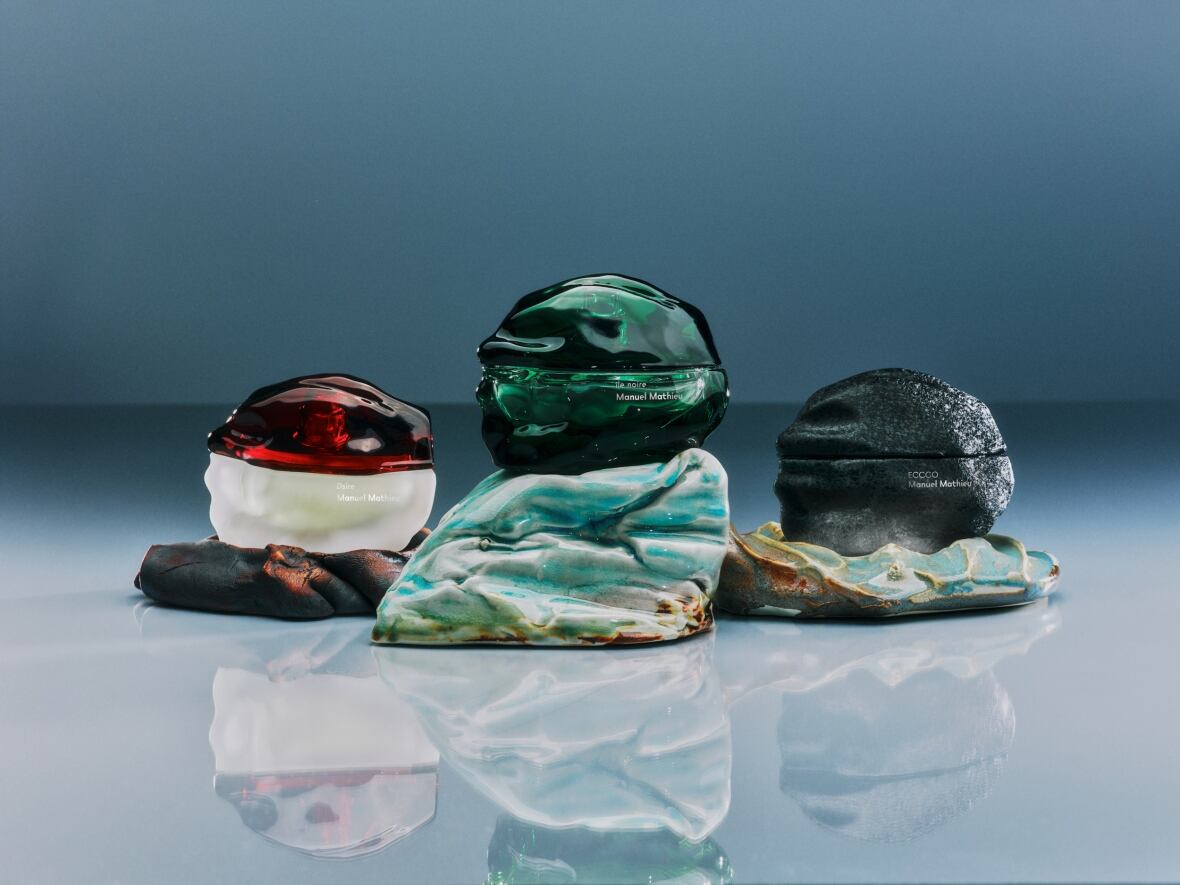
Mathieu only began to seriously consider launching a full-fledged brand in 2023. While working on an exhibition in Shanghai, he started talks with a Chinese fabricator that could produce a glass bottle based on Mathieu’s hand-crafted ceramics. Once he had the vision for a sculptural bottle — what he calls “a vessel to carry the project” — he felt confident enough in the idea of a perfume brand as an artistic gesture to invite Karagueuzoglou, now a friend, to compose two more perfumes with him.
Mathieu’s initiation into perfumery coincides with a larger groundswell of interest in fragrance. While the recent economic downtown has led to faltering sales in the fashion and beauty sectors, the market for high-end niche perfume has been growing exponentially. Business of Fashion reports that fragrance was 2024’s fastest-growing beauty category, and according to Business Research Insights, the luxury niche fragrance market was valued at $2.397 billion USD in 2024 and is projected to reach $8.12 billion USD by 2033.
An evolution in how consumers and audiences engage with perfume has accompanied this explosion in popularity. Fuelled in part by social media and by users of online forums like Fragrantica and Basenotes, fragrance has become a thriving subculture with a cottage industry of influencers, podcasts and newsletters.
Marianne Beauséjour, fragrance coordinator at Etiket, a Montreal boutique and spa (which stocks Manuel Mathieu Parfums), has witnessed a shift in the audience for fragrances in recent years, especially around gender. “Young men between 12–25 years old [are] coming in to discover the trending fragrances from platforms like TikTok and Instagram,” she says.
She also points to the impact of COVID-19 as a factor. “A lot of customers have said that turning to niche fragrances, for the storytelling element and for the unique and surprising formulas, helped them rediscover the pleasure of scents in a world that was suddenly asepticized.”
Heather Peat, founder of Chimie, a “sensory project dedicated to cultivating curiosity and fostering meaningful connections around scent,” also based in Montreal, underlines how the fragrance boom is a post-pandemic phenomenon.
“We were all seeking more creative practices, more practices of presence and attunement,” she says. In 2021, Peat herself left a high-pressure job in the fashion industry to take a course at the Grasse Institute of Perfumery in France.
The trend is part of a collective need for an embodied experience that can’t be transmitted through other media, she explains. “Scent is this act of paying attention, and when you smell something, it almost forces you to be in that moment.”
Chimie attracts an audience of creatives and what Peat calls “experience seekers” to its scent clubs, dinners and workshops. The popularity of Peat’s often sold-out events testifies to the growing appetite for scent as culture. “I definitely feel the shift,” Peat says. “Even two years ago, it was a very different landscape than what it is now. Manuel Mathieu is a great example of that.”
Mathieu is not the first artist to work with scent, nor even the first to collaborate with a nose from a major oil house. British installation artist and filmmaker Isaac Julien partnered with the brand Folie à Plusieurs and perfumer Yann Vasnier to create a fragrance for his performance/film/installation work A Marvelous Entanglement in 2019. The same year, U.S.-based Korean artist Anicka Yi worked with perfumer Barnabé Fillion (known for his fragrances for Aēsop) to produce a limited series of perfumes inspired by radical women. In 1982, Niki de Saint Phalle launched a perfume to help fund the creation of her Tarot Garden in Tuscany. Earlier, in the 1930s and ’40s, Surrealist artist and fashion designer Elsa Schiaparelli collaborated with Salvador Dali and Leonor Fini on the fantastical bottle designs for her much-admired perfumes.
Mathieu, however, might be the first contemporary artist to launch a full-fledged fragrance brand in the luxury niche market. The rollout of Manuel Mathieu Parfums Chapter 1 — his initial release of three fragrances: île noire, Dsire and ECCCO — has included events in Paris and at Grasse Perfume Week and Copenhagen Fashion Week, and culminated with a hometown launch party at Montreal’s PHI earlier this month.
The event was packed with a diverse crowd keen to sample the line in a lush environment featuring video projections, sculptural displays of the perfumes amid ceramics and tropical flora, and samples dispensed by a giant foam hand.
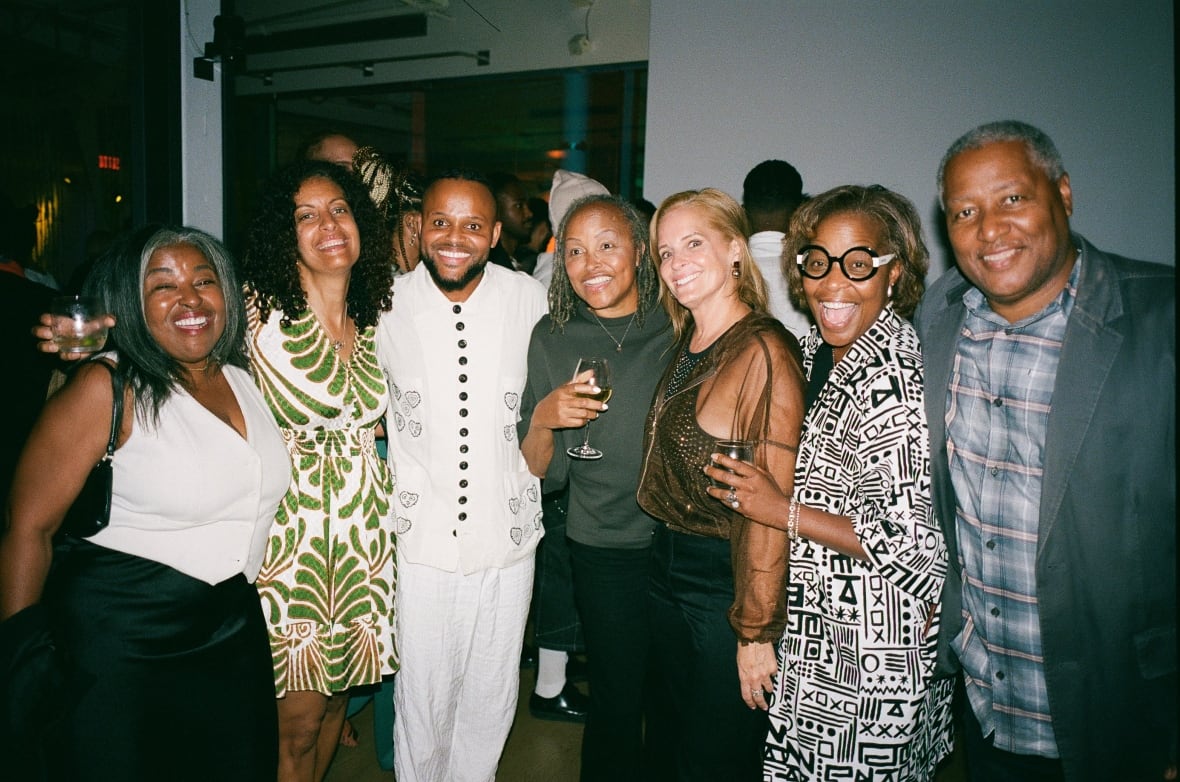
While future releases for Mathieu’s brand are in the works, he doesn’t intend for perfumery to take him away from the rest of his practice. In fact, scent is finding its way into his other projects. This fall, PHI will host Unity in Darkness, the artist’s most comprehensive exhibition to date. Among other recent works, including paintings, drawings, ceramics and video, the show will feature a large-scale, immersive olfactory installation.
“It’s kind of fun to see the olfactive find its way into my practice as a painter,” he muses. But it is also important to him that the brand isn’t seen as a purely commercial endeavour. Unlike Niki de Saint Phalle’s fragrance, Manuel Mathieu Parfums is not a fundraising source for his other work — quite the opposite, in fact. “The paintings I’m selling are fuelling the perfumes,” he says.
Mathieu’s obvious passion arises from his belief that fragrance offers “cultural relevance, because you’re touching more people in depth.” Smell is one of “the most powerful and spiritual” aspects of experience, he asserts. “That’s, naively, what I’m trying to do: create smells that people feel proud to wear, and that connect them with each other.”
The exhibition Unity in Darkness will be on display at PHI (407 Rue Saint-Pierre) in Montreal from Oct. 23 to March 8, 2026. Manuel Mathieu Parfums are available at www.manuelmathieuparfums.com.

